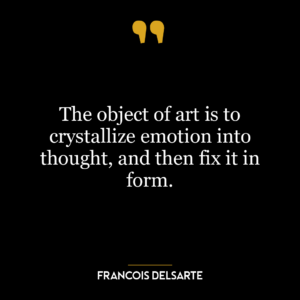This quote emphasizes the idea that our emotions do not define us, rather, they are phenomena that we experience. It’s a call to self-awareness and self-mastery, suggesting that we are separate entities from our emotions and have the power to control them.
The first part of the quote, “You are not your emotions,” encourages us to detach our identity from our emotions. Often, we tend to equate our emotions with who we are, saying things like “I am angry” or “I am sad”. However, this quote suggests that we are not inherently these emotions, but rather, we are experiencing them.
The second part, “you have emotions,” reaffirms this idea. It acknowledges that while we are not defined by our emotions, we do experience them. Emotions are a part of the human experience, but they are not the entirety of it.
The final part, “and you can master them,” is a powerful statement of potential. It suggests that we have the ability to control our emotions, rather than letting them control us. This isn’t about suppressing emotions, but rather, managing them in a healthy way, acknowledging them without letting them dictate our actions.
In today’s fast-paced, stressful world, this quote is particularly relevant. As we navigate through various challenges, it’s easy to get swept up in our emotions and let them control our actions. However, understanding that we are separate from our emotions can help us react more calmly and logically to situations.
In terms of personal development, this quote encourages emotional intelligence and mindfulness. By learning to separate ourselves from our emotions, we can develop a more objective understanding of our feelings. This can help us manage negative emotions, like stress or anger, more effectively, leading to improved mental health and overall well-being. Additionally, this understanding can enhance our relationships, as we can communicate our feelings more effectively without letting them control our actions.












